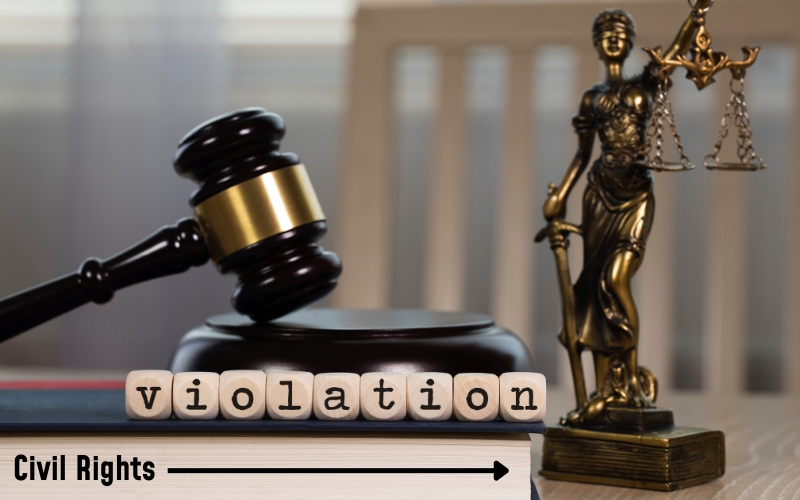
Civil rights are fundamental to our democracy, safeguarding our freedoms and ensuring equal treatment. Yet, violations of these rights can often go unnoticed, leading to significant personal and societal harm. Understanding and recognizing these violations is crucial for protecting yourself and others.
In this blog, we’ll explore common types of civil rights violations and provide clear guidance on how to identify them. Whether it’s discrimination based on race, unlawful searches, or police misconduct, we’ll cover the essentials.
Equip yourself with the knowledge needed to recognize and address these issues effectively. Stay informed and empowered to stand up for your rights and the rights of those around you.
Understanding Civil Rights Violations
Civil rights violations occur when individuals are denied their fundamental rights and freedoms. These violations can be complex and vary widely, affecting many aspects of life. Understanding these violations helps you recognize when your rights are being compromised.
Discrimination and Unequal Treatment
Discrimination involves treating someone unfairly based on characteristics like race, gender, age, or religion. Common forms include:
- Employment Discrimination: Unfair hiring, promotion, or termination practices.
- Educational Inequality: Denial of equal access to education based on personal attributes.
- Housing Discrimination: Bias in renting or buying property.
Recognizing these signs is key to addressing and rectifying discriminatory practices. If you face such issues, document the incidents and seek legal advice to understand your options.
Unlawful Searches and Seizures
The Fourth Amendment protects against unreasonable searches and seizures. Unlawful searches and seizures occur when authorities violate this right. Key indicators include:
- No Warrant: Searches conducted without a valid search warrant.
- Excessive Force: Use of force beyond what is necessary to carry out a search.
If you believe your rights were violated during a search, gather evidence and consult with an attorney who specializes in civil rights law.
Police Misconduct
Police misconduct includes a range of behaviors by law enforcement that violate individuals’ rights. Common examples are:
- Excessive Force: Using more force than necessary in an arrest or encounter.
- False Arrest: Detaining someone without proper legal justification.
- Abuse of Power: Actions that go beyond lawful authority.
Documenting encounters and seeking legal assistance can help address and resolve issues of police misconduct.
Freedom of Speech and Expression Violations
The First Amendment guarantees freedom of speech and expression. Violations of these rights might involve:
- Censorship: Preventing individuals from expressing their views.
- Retaliation: Punishment for speaking out or criticizing authorities.
If you experience violations of your free speech rights, keep records of incidents and seek legal counsel to explore your options for redress.
Right to Privacy Violations
Various laws and constitutional provisions protect the right to privacy. Violations include:
- Unauthorized Surveillance: Monitoring personal activities without consent.
- Intrusive Searches: Invasive searches of personal property or communications.
Recognizing these breaches is vital for protecting your privacy. Document any incidents and consult a legal expert to understand your rights and remedies.
Fighting Civil Rights Violations
Addressing civil rights violations involves several steps:
- Document Evidence: Keep detailed records of any incidents, including dates, times, and descriptions.
- Report the Violation: Notify relevant authorities or organizations that handle civil rights complaints.
- Seek Legal Help: Consult a personal injury attorney specializing in civil rights to guide you through the legal process.
Understanding and recognizing civil rights violations is crucial for protecting your freedoms. Whether it’s discrimination, unlawful searches, or violations of privacy, knowing your rights empowers you to take action. Documenting incidents, reporting them, and seeking legal help from a qualified professional can make a significant difference. If you believe your rights have been violated, don’t hesitate to take steps to address the issue and seek justice.




